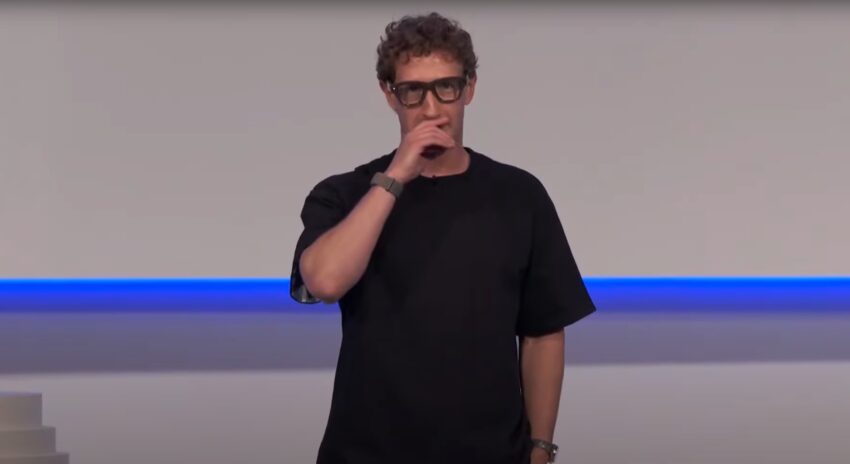
meta s failed smart glasses demos had Meta’s recent live demonstrations of its new smart glasses were marred by significant technical issues, leading to an explanation from the company’s chief technology officer.
meta s failed smart glasses demos had
Overview of the Demos
During the Meta Connect 2025 event, the tech giant showcased its latest advancements in smart glasses technology. The event featured a series of live demonstrations intended to highlight the capabilities of the new Meta Ray-Ban smart glasses. However, the presentations quickly turned awkward as two notable demos failed spectacularly. The first involved an influencer requesting cooking instructions from the AI assistant, while the second featured CEO Mark Zuckerberg attempting to answer a WhatsApp call.
Technical Glitches Explained
In an Instagram Ask Me Anything (AMA) session, Andrew Bosworth, Meta’s chief technology officer, provided insights into the reasons behind the failures. He explained that the cooking demo went awry when the influencer said, “Hey Meta, start Live AI.” Instead of activating the AI for just that instance, the command inadvertently triggered every Meta Ray-Ban Live AI device in the vicinity.
“We had routed Live AI traffic to our dev server, in theory, to isolate it, but we had done it for everyone in that building on those access points,” Bosworth noted. “We DDoS’d ourselves, basically.” This statement clarified that the issues were not due to Wi-Fi connectivity, as Zuckerberg had suggested during the live event.
Video Call Malfunction
The second significant failure involved a video call that Zuckerberg attempted to answer. Bosworth described this issue as “more obscure,” attributing it to a “never-before-seen bug.” The problem arose because the display glasses had entered sleep mode just as the device received the call notification. This unexpected interaction led to a failure in the demo, which Bosworth acknowledged was a “terrible place for that bug to show up.”
Despite the embarrassment of the moment, Bosworth assured viewers that the bug had been fixed, indicating that the company is committed to addressing technical issues promptly.
Context of the Demonstrations
Live demonstrations of technology products often carry a significant risk of failure, especially when showcasing new and untested features. Companies like Meta, Apple, and Google frequently rely on pre-recorded videos to present their innovations, minimizing the chances of live mishaps. However, Meta’s decision to conduct live demos reflects a commitment to transparency and authenticity in product presentation.
While the technical failures were unfortunate, they also provided a stark contrast to the polished, pre-recorded presentations that audiences have come to expect from other tech giants. This approach may resonate positively with consumers who appreciate honesty and the acknowledgment of real-world challenges in technology.
Implications for Meta and the Smart Glasses Market
The failures during the live demos may have immediate implications for Meta’s reputation, particularly as it continues to compete in the smart glasses market. The company has positioned itself as a leader in augmented reality (AR) and wearable technology, and any setbacks could impact consumer perception and investor confidence.
However, the willingness to address and explain these technical issues could also foster goodwill among consumers and industry observers. In an era where companies often shy away from admitting faults, Meta’s transparency may be seen as a refreshing change. It suggests that the company is not only focused on innovation but also on learning from its mistakes.
Reactions from Stakeholders
The reactions to the demo failures have been mixed. Some industry analysts have praised Meta for its candidness, suggesting that the company’s approach could help build trust with consumers. Others, however, have expressed concern about the implications of such technical glitches for a product that is expected to be at the forefront of smart glasses technology.
Social media reactions have also varied, with some users expressing sympathy for the presenters while others took the opportunity to poke fun at the situation. Memes and jokes about the failures quickly circulated online, highlighting the challenges of live tech demonstrations in a humorous light.
Future of Smart Glasses Technology
Despite the setbacks, the future of smart glasses technology remains promising. Companies like Meta are investing heavily in research and development to enhance the capabilities of wearable devices. As technology continues to evolve, features such as augmented reality overlays, improved battery life, and seamless integration with other devices are expected to become standard.
Meta’s smart glasses aim to provide users with a hands-free experience, allowing for real-time information access and communication. As the market for smart glasses grows, competition is likely to intensify, pushing companies to innovate and refine their products continuously.
Consumer Expectations
Consumer expectations for smart glasses are evolving as well. Users are increasingly looking for devices that not only offer advanced technology but also deliver a seamless and user-friendly experience. The failures during the Meta Connect event may serve as a reminder that while innovation is essential, reliability is equally crucial.
As companies strive to meet these expectations, they must balance the excitement of new features with the need for stability and performance. The lessons learned from the recent demo failures could inform future product development and testing protocols, ensuring that similar issues are less likely to occur in the future.
Conclusion
Meta’s recent live demonstrations of its smart glasses were marked by technical failures that provided both challenges and opportunities for the company. While the glitches were embarrassing, the transparency shown by Meta in addressing these issues may ultimately strengthen its relationship with consumers. As the smart glasses market continues to evolve, the lessons learned from these demonstrations will be crucial in shaping the future of wearable technology.
In an industry where innovation is rapid and expectations are high, the ability to adapt and learn from setbacks will be vital for Meta and its competitors. As the company moves forward, it will be essential to focus on delivering reliable and user-friendly products that meet the demands of an increasingly tech-savvy consumer base.
Source: Original report
Was this helpful?
Last Modified: September 19, 2025 at 4:37 pm
0 views















